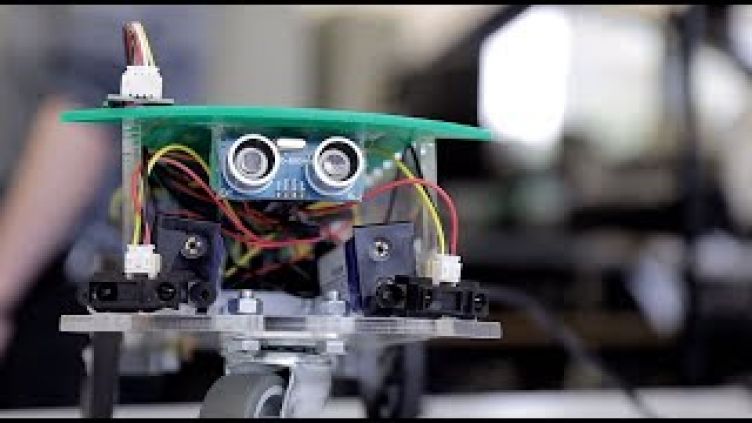Course structure and accreditation
All of our undergraduate courses in the Department for Automatic Control and Systems Engineering are accredited. This is a mark of assurance that our degree programmes meet the high standards set by the engineering profession.

First year
All of our degrees share a common first year. This ensures that you will develop the fundamental knowledge needed to support you throughout the course, along with essential understanding and skills. The common structure gives you more flexibility and means that you are able to easily move between our programmes if your interests change during your first year.
By the end of your first year you will have learnt the full range of core foundations for control and systems engineering, as well as broader engineering skills. Our teaching is based on a systematic and structured approach to support your learning.
Laboratory and professional skills are strongly integrated within the taught modules, and you will undertake your laboratory work in our award-winning Diamond building, using the latest equipment and technologies.
Second year
During your second year you will continue to further develop your knowledge, understanding and skills across a wide range of core engineering foundations. You will also begin to specialise in the subject-specific focus of your degree. This subject specification is delivered via your option modules and assessment activities. During this year you’ll begin taking more control of your learning and professional development through your self-study and assessment activities.
Third year
In your third year you will continue to develop your core systems engineering disciplines, but will be particularly focused on more advanced techniques and applications specific to your degree and specialisation. The modules are strongly informed by our world-leading research and numerous industrial partners and applications.
There is a strong focus on the continuous development of professional skills to broaden your knowledge and understanding of the wider areas of management, law and finance and their importance in an industrial context. By the end of the year you will have developed into an independent and self-motivated learner who is competent in tackling and presenting solutions to complex open-ended problems.
Fourth year
If you continue on to our MEng in your fourth year you will study a range of advanced modules in your chosen specialisation. You'll learn about the latest developments and techniques, informed by industry and our world leading research. There is a strong focus on solving very advanced and open-ended problems. This requires the application of high level critical analysis and thinking in deciding on the most appropriate tools and bringing them together to provide a highly effective and creative solution that may be subject to a range of complex constraints.
Accreditation
All of our undergraduate courses in the Department for Automatic Control and Systems Engineering are accredited. This is a mark of assurance that our degree programmes meet the high standards set by the engineering profession.
Graduates from an accredited engineering degree programme will have achieved part or all of the underpinning knowledge for later professional registration as an Incorporated Engineer (IEng) or Chartered Engineer (CEng).
Read more about the regulating bodies the department work in partnership with:
Accredited Courses are Educational Qualifications that have been determined to meet the academic requirements of ECUK and its member Institutions for registration as Chartered Engineer (CEng), Incorporated Engineer (IEng) or Engineering Technician (EngTech).
Description of accredited courses
The Engineering Council UK
Accredited Courses are educational qualifications that have been determined to meet the academic requirements of ECUK and its member Institutions for registration as Chartered Engineer (CEng), Incorporated Engineer (IEng) or Engineering Technician (EngTech).
All our courses (BEng/MEng) are also fully accredited by the IET and InstMC.
Should I study for an MEng or BEng?
Accredited BEng courses meet the educational requirements for both IEng and partial-CEng status.
Accredited MEng courses meet the educational requirements for CEng status.
For more information on the significance of the titles IEng and CEng and the full eligibility requirements for these, please see the Engineering Council website.

International Merit Scholarships
We offer a generous package of financial support for international students including 75 undergraduate scholarships worth £10,000 towards the annual tuition fee and 125 postgraduate taught scholarships worth £5,000 towards the tuition fee. Applications are now open for existing offer holders.

